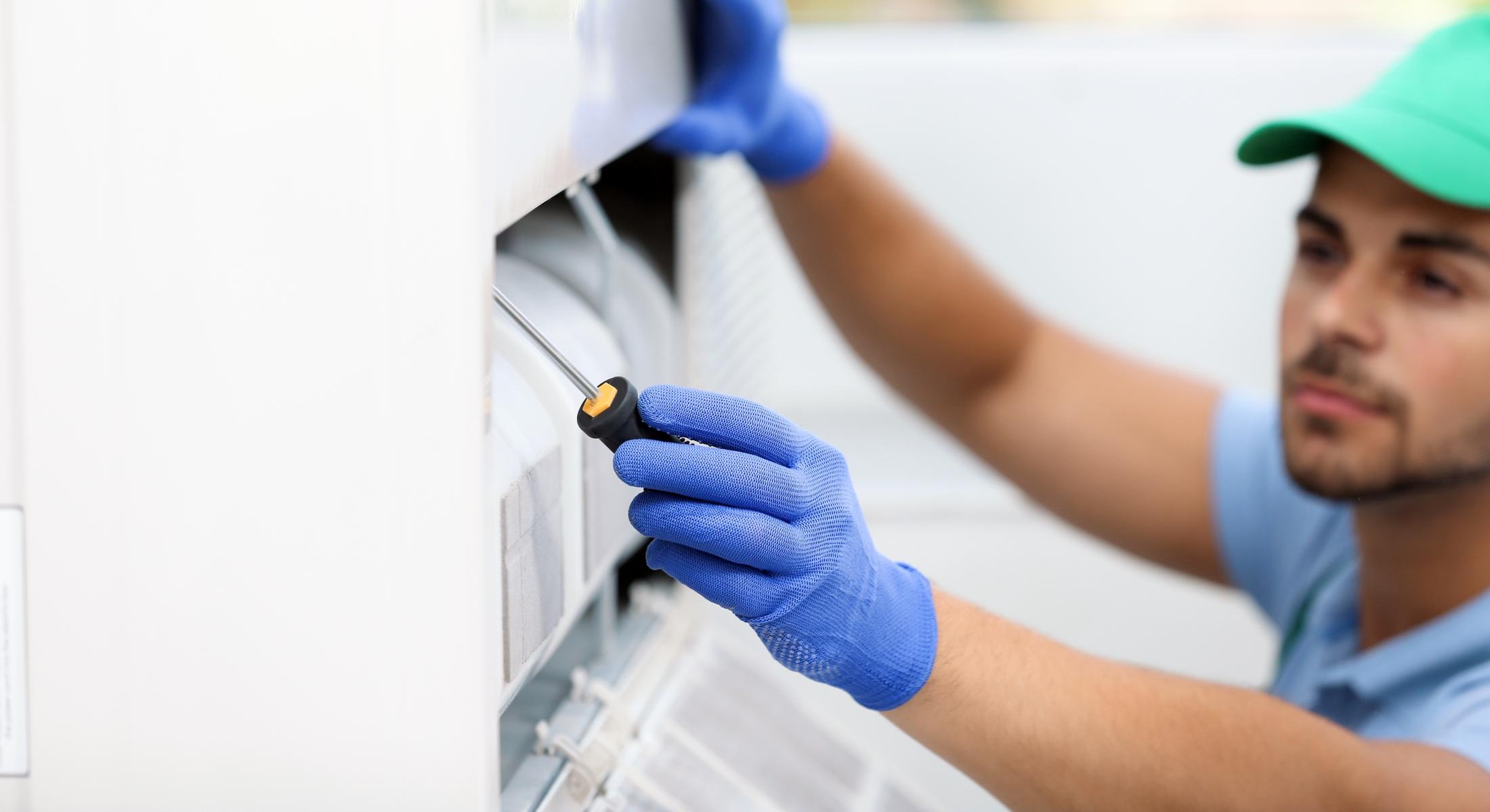
An overloaded your HVAC system can lead to inefficiencies, which in turn cause higher energy bills and the potential for costly repairs. Additionally, a system under constant strain is likely to have a shorter lifespan, leading to more frequent replacements and a higher overall cost of ownership.
Understanding and addressing the factors that contribute to HVAC overload can help you maintain a comfortable indoor environment year-round.
Recognizing HVAC System Overload
Efficient operation of your HVAC system is crucial for maintaining a comfortable indoor environment and avoiding unnecessary expenses. However, many homeowners unintentionally overload their systems, leading to inefficiencies, increased energy bills, and costly repairs.
Understanding the root causes of HVAC overload is the first step toward preventing it.
What Causes HVAC Overload?
- Improper Sizing
One of the primary reasons for HVAC overload is installing a system that is either too small or too large for your home. A system that is too small will struggle to maintain the desired temperature, running continuously and wearing out faster. Conversely, an oversized system will cycle on and off frequently, leading to inconsistent temperatures and increased wear and tear. - Neglecting Maintenance
Regular maintenance is essential for the efficient operation of your HVAC system. Neglecting tasks such as cleaning or replacing air filters, checking refrigerant levels, and cleaning coils can significantly reduce efficiency. Over time, this lack of maintenance forces the system to work harder to achieve the same results, leading to overload. - Poor Insulation
Inadequate insulation in your home can also contribute to HVAC overload. When your home is not properly insulated, your HVAC system has to compensate for the loss of heated or cooled air, resulting in longer running times and increased strain on the system. Proper insulation helps maintain a consistent indoor temperature, reducing the workload on your HVAC system.
Proactive Measures to Prevent HVAC Overload
Taking proactive steps to prevent HVAC overload can help you maintain an efficient and long-lasting system. By implementing the following measures, you can ensure your HVAC system operates smoothly and effectively, reducing the risk of overload and the associated costs.
Implement Zoning Systems
Zoning systems are an excellent way to distribute cooling and heating more evenly throughout your home. By dividing your home into different zones, you can control the temperature in each area separately, ensuring that your HVAC system doesn’t have to work harder than necessary.
- Customized Comfort
Zoning allows you to tailor the temperature settings to different areas of your home according to their usage. For instance, you can keep your living room cooler during the day while maintaining a warmer temperature in the bedrooms at night. - Energy Efficiency
By only heating or cooling the areas that are in use, zoning systems help minimize energy waste. This targeted approach reduces the strain on your HVAC system, leading to improved efficiency and lower energy bills.
Regular Maintenance
Regular maintenance is crucial to keep your HVAC system running efficiently and to prevent it from working harder than necessary. Simple maintenance tasks can go a long way in ensuring optimal performance.
- Air Filter Replacement
Clean or replace air filters every 1-3 months to maintain optimal airflow. Dirty filters can restrict airflow, causing your HVAC system to work harder to circulate air throughout your home. - Professional Inspections
Schedule annual check-ups with qualified HVAC technicians such as The Boiler Shoppe to inspect and tune up your system. These inspections can identify and address potential issues before they become major problems, ensuring your system operates smoothly year-round.
Use Programmable Thermostats
Programmable thermostats, such as Nest, can help you maintain consistent indoor temperatures, preventing your HVAC system from overworking during peak hours.
- Energy Savings
Set the thermostat to adjust the temperature when you are not home. This simple adjustment can lead to significant energy savings by reducing the amount of time your HVAC system runs unnecessarily. - Extended Equipment Life
Consistent temperature regulation reduces the wear and tear on your HVAC system, extending its lifespan. By preventing your system from overworking, you can avoid frequent repairs and replacements.
Additional Tips for Preventing HVAC Overload
In addition to the proactive measures previously discussed, there are several other strategies you can implement to prevent your HVAC system from overloading. These additional tips will help you optimize your system’s performance, enhance energy efficiency, and maintain a comfortable indoor environment.
Improve Home Insulation
Proper insulation is critical for maintaining an efficient HVAC system. By ensuring your home is well-insulated, you can reduce the workload on your system, leading to better performance and lower energy bills.
- Seal Leaks
Inspect your home for any gaps or cracks around doors, windows, and other openings. Sealing these leaks can prevent heated or cooled air from escaping, reducing the need for your HVAC system to run constantly to maintain the desired temperature. - Upgrade Insulation
Consider upgrading the insulation in your attic, walls, and floors. High-quality insulation materials can significantly improve your home's energy efficiency by keeping the indoor temperature stable and reducing the strain on your HVAC system.
Optimize Ventilation
Proper ventilation is essential for ensuring that your HVAC system operates effectively without unnecessary strain. Optimizing your home’s ventilation can help distribute air more efficiently and prevent your system from overworking.
- Clear Vents
Make sure that all vents and registers are free from obstructions such as furniture, curtains, or other objects. Blocked vents can restrict airflow, causing your HVAC system to work harder to circulate air throughout your home. - Balanced Airflow
Maintain balanced airflow by keeping interior doors open when the HVAC system is running. This practice helps distribute air evenly throughout your home, preventing hot or cold spots and reducing the strain on your system.
Ensuring Longevity and HVAC System Care
Preventing your HVAC system from overloading is essential to maintaining its efficiency and avoiding costly repairs. Taking proactive steps to maintain your HVAC system not only ensures optimal performance but also extends the lifespan of your equipment. These measures help you avoid unnecessary strain on your system, leading to lower energy bills and fewer repair costs. By being proactive, you can enjoy a comfortable indoor environment and peace of mind year-round.
For expert assistance in maintaining and optimizing your HVAC system, contact The Boiler Shoppe. Our qualified team of engineers will provide professional advice, installation, and maintenance services to ensure your system operates efficiently and effectively.
